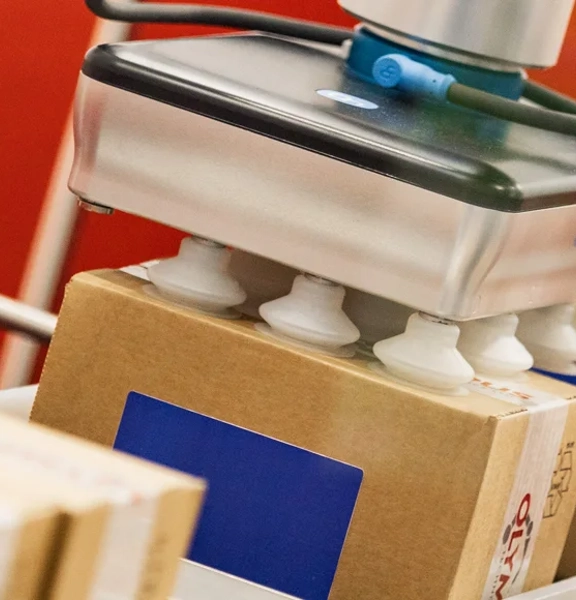Become a member
Take advantage of exclusive member benefits, world class events, networking and specialist support








 Become a member
Become a member 


 Autonomous mobile robots & Guides vehicles’
Advanced robotics
Autonomous mobile robots & Guides vehicles’
Advanced robotics
Automation in the manufacturing industry has been around since the Industrial Revolution.
Technological developments have further integrated automation into the production line throughout the 19th and 20th centuries.
And now, in the 21st century, as robotics and artificial intelligence (AI) have become increasingly sophisticated, we are entering a new phase of industrialisation that promises a significant boost to manufacturing.
Robotic process automation (RPA) is at the heart of this, offering an array of benefits that are changing both the production line and human job roles forever.
Robotic process automation refers to software tools that work alongside robotic machinery to automate repetitive, manual tasks.
In manufacturing, this refers to the automation of tasks along the production line that would previously have been done by human workers, which frees them from mindless manual labour. As Professor Leslie Wilcox of the London School of Economics put it, “[RPA] takes the robot out of the human.”
Robotic process automation boasts many tangible benefits for the Manufacturing industry.
Along with ensuring accurate and consistent output, robot automation enables production lines to run more efficiently.
As machinery can be programmed to work continuously, with no breaks, production can continue around the clock, boosting productivity proportionately. The automotive industry, for example, has seen a 50% increase in productivity through the use of RPA since 2009.
Robotic processes are controlled by software, which is reprogrammable to incorporate design and process changes whenever they are needed. This significantly reduces the need to retrain or brief staff for these changes and means that a variety of products can be created using the same production line.
This is pertinent to businesses where the products produced are often upgraded. In the past, a new machinery infrastructure would be required for new product iterations, an extremely costly and time-consuming process.
As such, RPA is both economically and environmentally more efficient and effective than previous processes.
From the human worker’s perspective, the benefits of robot automation are twofold.
Firstly, health and safety within the manufacturing plant are vastly improved. With robots taking over risky tasks on the production line, human risk is significantly reduced.
Secondly, jobs within manufacturing are transformed through automation. Rather than, as many have postulated, jobs are being lost to robots as a result of these changes, humans are now being elevated from monotonous tasks. Individuals can now be placed in roles where their skills and abilities can be used and developed - a far more satisfying prospect than lifting and moving pallets for example. With the development of new skills comes career progression and better income.
Despite the many benefits of robotic process automation, there are still some manufacturers that are hesitant to invest in RPA.
The initial outlay is expensive, but it is important to note that the return on investment for businesses that implement RPA is palpable.
Yes, it does take time to recoup that investment outlay, but the financial benefits of its implementation are proven to drive substantial profits.
What’s more, the UK government has pledged large sums of money to assist businesses with implementing RPA technology, so finance and grants are readily available for those who wish to take advantage of the opportunity.
A crucial point to note is that history is littered with examples of companies that failed to invest in technology paying the ultimate price. To keep pace with the consumer and to remain profitable and competitive, it is necessary to be as productive and efficient as your competitors or to outpace them.
Manufacturing has always been an industry of ‘sink or swim’ when it comes to technology. This is no exception.
This enlightening video from Mike Wilson, BARA (HVMC) , speaking on the uses and benefits of robotic process automation, is an excellent resource for learning more about the importance of implementing robotics in the manufacturing industry.
BARA (British Automation and Robot Association) promotes the use of and assists in the development of industrial robots and automation in British industry. The association provides strong support to assist with the growth of the automation sector in the UK.
You can find out more about BARA, and access more helpful resources, here.
Automate UK has an extensive database of companies offering robotics and automation machinery, both in the UK and internationally. Our database includes machinery for everything from processing and packaging to ancillary manufacturing machinery and robot vision.
To search for the right supplier for your manufacturing project, visit the Automate UK Machinery Finder.